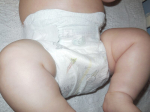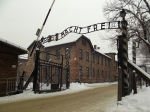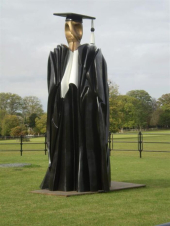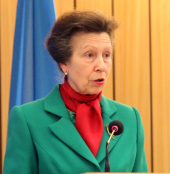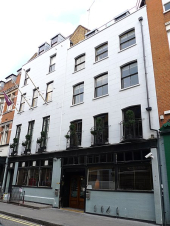
A fearless campaigner for democratic openness, or a criminal trying to avoid justice: WikiLeaks founder Julian Assange is a highly polarising figure who finds himself once again at the centre of
global attention.
The 48-year-old Australian is the figurehead of the whistleblowing website that exposed government secrets worldwide, notably the explosive leak of US military and diplomatic files.
But he has spent most of the past decade either in custody or holed up in Ecuador's London embassy as he has tried to avoid extradition -- first to Sweden and then to the United States.
If found guilty of the espionage charges filed there, Assange could be jailed for 175 years.
Transparency and anti-war campaigners have hailed him for revealing the deaths of civilians, torture and clandestine military operations with the release of 500,000 US documents on the Iraq and Afghan wars.
But Washington and its allies have accused him of risking lives by sharing information on sources, intelligence techniques and key infrastructure sites.
He has been held at the high-security Belmarsh prison in southeast London since he was dragged out of the Ecuadorian embassy ten months ago.
His team have repeatedly warned about his health and an independent UN rights expert said in November that his continued detention was putting his life at risk.
Meanwhile, the Council of Europe rights group was last week the latest such organisation to warn that Assange's extradition would have a "chilling effect" on press freedoms.
- Space station life -
The saga began in 2010 when Assange faced allegations of sexual assault and rape in Sweden, which he always denied, saying they were a pretext and the ultimate goal was to transfer him to the US.
He was in Britain at the time but dodged an attempted to extradite him to Sweden by claiming political asylum in Ecuador's embassy in London.
For seven years he lived in the small apartment in the embassy, exercising on a treadmill and using a sun lamp to make up for the lack of natural light in a situation he compared to living in a space station.
But after a change of government in Quito, Ecuador lost patience with its guest and turned him over to British police in April. He was arrested for jumping bail and jailed.
After his arrest it was revealed that the US were charging him with violating the US Espionage Act with the 2010 leaks, and he is now fighting extradition.
However, Swedish prosecutors confirmed last year they had dropped the rape investigation, saying that despite a "credible" account from the alleged victim there was insufficient evidence to proceed.
- Ties with Russia? -
Assange was initially supported by human rights groups and newspapers that once worked with him to edit and publish the war logs.
But many were horrified when WikiLeaks dumped unredacted documents online, including the names of informants.
When a UN panel declared in 2016 that Assange had been detained arbitrarily, one of his previous media partners, the Guardian, dismissed the idea and said he should face justice.
There have since been questions about his relationship with Russia.
Robert Mueller's probe into interference in the 2016 US presidential election found that Russian government actors hacked candidate Hillary Clinton's campaign "and publicly disseminated those materials through various intermediaries, including WikiLeaks".
In a preliminary court hearing in London last week, Assange's lawyer alleged US President Donald Trump had promised a pardon if he denied that Russia leaked the emails that damaged his rival, Clinton.
The White House denied the claim.
- War logs exposed -
Born in Townsville, Queensland, in 1971, Assange has described a nomadic childhood and claims to have attended 37 schools before settling in Melbourne.
As a teenager, he discovered a talent for computer hacking and although he has since pleaded guilty to 25 such offences he has never been jailed. He has only ever walked away with fines.
He created WikiLeaks in 2006 with a group of like-minded activists and IT experts to provide a secure way for whistleblowers to leak information.
A confident speaker, he became its figurehead and a lightning rod for criticism.
The most damaging leaks emerged in 2010, beginning with a video showing a US military Apache helicopter firing on and killing two journalists and several Iraqi civilians on a Baghdad street in 2007.
It was followed by more than 90,000 classified US military files from the Afghan war, 400,000 from Iraq, and in November that year, around 250,000 US diplomatic cables covering almost every country in the world.AFP














